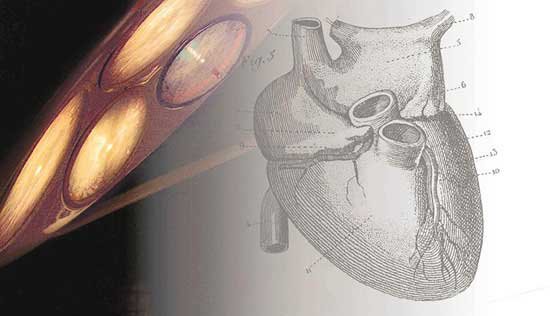PM - Liver transplant patient hailed a 'medical miracle'
Liver transplant patient hailed a 'medical miracle'
PM - Thursday, 24 January , 2008 18:10:00
Reporter: Paula Kruger
ASHLEY HALL: Doctors in Sydney may have stumbled across the holy grail of transplant surgery.
A young liver transplant patient has taken on the immune system of her donor, allowing her to stop taking potentially toxic anti-rejection drugs.
The doctors aren't exactly sure how it happened, but they do see potential benefits for other transplant patients, as well as for sufferers of auto-immune diseases like multiple sclerosis and type-one diabetes.
Paula Kruger reports.
PAULA KRUGER: Demi Brennan is a very grateful 15-year-old.
DEMI BRENNAN: I'm probably the most grateful person because that has saved my life, that gave me a chance to fulfil my life.
PAULA KRUGER: But the Sydney teenager isn't just blessed with the donated liver that saved her life six years ago, she is being hailed as a medical miracle.
Organ transplants have been saving lives around the world for 50 years but patients have had to take toxic anti-rejection drugs - known as immunosuppressant drugs - for the rest of their lives.
Demi Brennan doesn't. Instead her immune system changed to that of the organ donor.
It was a development that surprised Dr Michael Stormon, a paediatric hepatologist who treated Ms Brennan at Sydney's Westmead Hospital.
MICHAEL STORMON: Oh, we were stunned, because we'd never come across this before, we… there was no precedent for this having happened at any other time, so we were sort of flying by the seat of our pants to a certain degree trying to sort this out.
PAULA KRUGER: When Demi Brennan was nine years old she caught a virus that caused her liver to fail.
She was given an urgent transplant but became very ill nine months after the operation.
She suffered a process called haemolysis - her red blood cells were breaking down.
It was at that point that doctors discovered her blood type and bone marrow had changed to that of the organ donor.
But the young patient was still gravely ill.
MICHAEL STORMON: We certainly struggled with this for months and months because of the haemolytic process, she required multiple blood transfusions, we discovered that most but not all of her immune system was also that of the donor.
But at the same time she was producing some antibodies herself and you know, we as I said, struggled for several months. She spent that time in hospital. We put her on large doses of immunosuppression to try and stop that process.
And it was then that we decided, you know, one of our other options was actually to stop all her immunosuppression in the hope that she would become, her immune system would become completely that of the donor. And in fact that's what happened.
PAULA KRUGER: The patient is now a normal healthy 15-year-old.
But after taking on someone else's immune system she had to be re-vaccinated against the measles and mumps because the donor had never been vaccinated against the diseases.
Demi Brennan's case is being seen a medical breakthrough, and there are potential benefits for not only transplant surgery but a range of auto-immune diseases too, if the results can be replicated.
But her doctors still aren't sure why it happened.
MICHAEL STORMON: I think it's a combination of factors and I guess that's the million-dollar question because, if we could replicate this then that would be a fantastic achievement, but it's probable that there was a sort of sequence of events that in some way resulted in this occurring.
PAULA KRUGER: Dr Michael Stormon has co-authored an article on Demi Brennan's remarkable recovery in the New England Medical Journal.
The latest issue also reports on a similar situation in the United States.
Researchers from Stanford University in California treated a patient with radiation and a drug that destroyed his T-cells before transplanting a kidney from the patient's brother.
Along with the transplant was a blood infusion that had been enriched for blood-producing stem cells.
Two years after the procedure the patient still has his brother's immune cells in his system and there are no signs of organ rejection even though he has stopped taking immunosuppressant drugs.
The researchers are continuing their study and say that if all goes well with other patients the technique could be generally available within ten years.
ASHLEY HALL: Paula Kruger reporting.

No comments:
Post a Comment